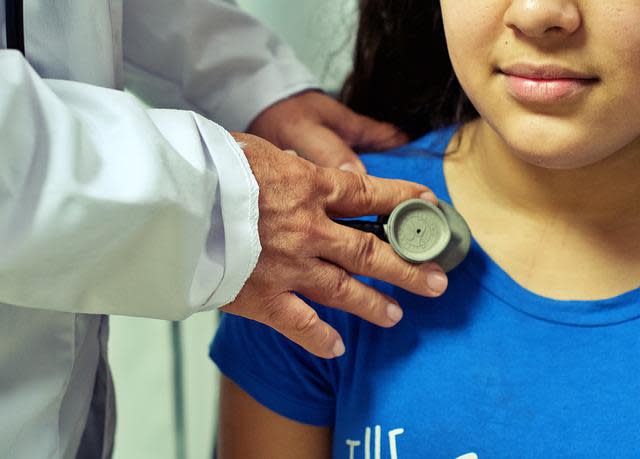Pediatric research: Identifying basic social needs key in medical office visits

Food. Shelter. Safety.
We all understand these to be basic needs, and a growing body of research shows they are critical to child health. Abraham Maslow, a psychologist in the 1940s, presented a theory of how humans are motivated. In his theory, he outlined a hierarchy of needs, which we now know as Maslow’s pyramid.
According to Maslow’s framework, the needs at the lowest level must be met before the needs at the next level can be fully addressed. The two levels on the bottom are physiological needs (food, clothing, shelter, sleep) and safety needs (personal safety, employment resources, health).
It’s not surprising these essential needs for human motivation are also essential needs for good health.
Health-related social needs, often referred to as social determinants of health, include poverty, food insecurity, lack of stable housing and racism. The consequences for children who do not have these needs met can follow them for a lifetime.
Public Health: Franklin County commissioners vote to add racial equity as a county core principle
Research shows that poverty can lead to substantial effects on educational attainment, risky behaviors and employment later in life. Food insecurity can affect overall health and is associated with more emergency department visits, anxiety and depression. Housing concerns, whether it is lack of housing or poor-quality housing, have been independently linked to health outcomes such as hospitalizations, developmental risks and overall health. Finally, experiencing racism can amplify these risks and outcomes. Racism is also independently associated with increased mental health concern, increased risk of stress-related diseases and other negative health outcomes.

Having social needs met is crucial to a child’s ability to grow, develop and thrive. Because of this, more health care providers are working to identify and address these needs in the medical office setting.
The most-direct way to identify the needs of patients and families is simply to ask them. Health related social needs assessments are gaining increased use, but how to gather, store and act on the information has remained a challenge.
If a family fills out a survey on paper and hands it to a nurse or medical assistant, what then? Do they fill out the same survey each visit? If the questions are asked verbally while vitals or registration information is being gathered, how are the answers recorded? What’s the plan for follow up?
A recent study published in Pediatric Quality and Safety showed that implementing a health system-wide, health-related social needs screening using the electronic medical record was a feasible and effective solution to these questions. The process improved screening compliance in primary care, urgent care and specialty clinics from 0 to 70%.
The screening also increased the identification of and, most importantly, the response to those social needs. About 10% of patients screened had at least one social need; 3% had urgent needs that were addressed at that appointment. For those who had non-urgent needs identified, 85% had social work consultations within a week of their appointment, and about 56% had resources provided to them.
By using a tool that is part of nearly every health care system, health care providers are working together to meet the needs of the whole child and family. In doing so, they are setting up the child to live the most healthful and successful life possible.
Abbie Roth is managing editor of Pediatrics Nationwide and Science Communication at Nationwide Children's Hospital.
Abbie.Roth@nationwidechildrens.org
This article originally appeared on The Columbus Dispatch: Pediatric research: Social needs assessments key to help kids thrive

